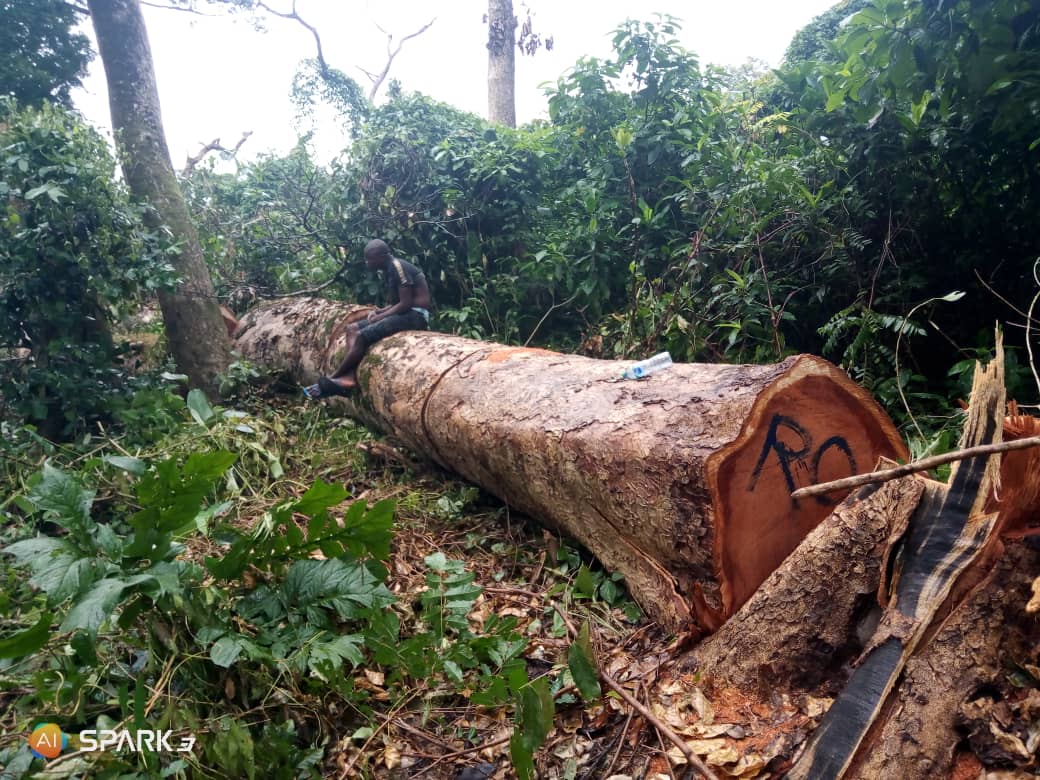The deepening economic relationship between Nigeria and China has benefitted the wood industry in Nigeria but how deep does this relationship go and could it potentially be detrimental to the Nigerian economy and environment?
Ibrahim Mama is a goods transporter in Nigeria. Every day, he wakes up at 5:30 in the morning, says his prayers before proceeding to work. He has owned his transport business based in the Central regions of Nigeria for over 40 years and only recently decided to concentrate on timber transportation. Now in his early sixties, Mama says the growing influence of the Chinese in the wood industry has benefitted his business tremendously. “Before the Chinese came, I was transporting just simple goods like furniture, livestock and foodstuff. The Chinese came up with this idea and it has been very profitable for me. Now I concentrate on timber transportation as it pays a lot more.”
Mama, who worked as a simple goods transporter before deciding to concentrate on timber transportation, transports timber in heavy trucks from the interior forests of Taraba State which is located in the north-eastern part of Nigeria, where a common boundary is shared with Cameroon. The tough forest terrain and language barriers make the area difficult for penetration by the Chinese timber merchants and this is the reason Mama works in close association with them. Mama conveys the wood in trucks to his transport base in Benue state after they have been felled by the local village youths for a fee.
The felled trees are then processed into logs of wood for shipment by the Chinese timber merchants. Mama conveys the processed timber to Port-Harcourt State, home of the oldest seaport in Nigeria, where they are finally shipped to China. He says this business relationship with the Chinese has positively impacted not only himself but also the local community. “When business is flourishing, particularly during the drier season, everyone is working; the truck drivers, the food vendors and even the local youths that cut down the trees. There is work for everyone. When business slows down, everyone asks where the Chinese have gone,” he says.
On a good day, Mama says he earns up to one million naira (over $2,750) for transporting a trailer load of timber from the forests of Taraba state to his transport base in Benue. A trailer load of timber, according to Mama, contains just over 200 logs of wood. He makes even more money from transporting these logs of wood, after they have been processed, to Port-Harcourt state where they are finally shipped to China. At the end of the process, Mama says he can earn up to three million naira ($8,200) from transporting timber from the forests of Taraba state to the seaport. He also gets paid for his role as a negotiator between the Chinese timber merchants and the local communities that supply these logs of wood. This is thus a very lucrative business for him.
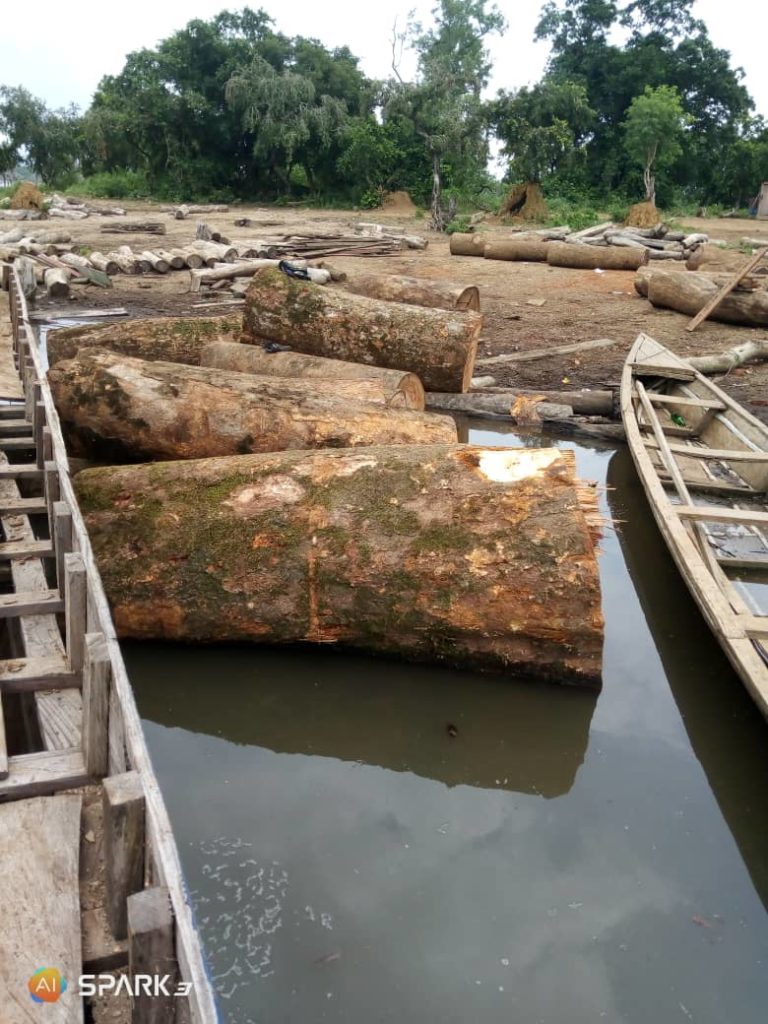
The wood industry in Nigeria has experienced tremendous growth over the last decade. According to Forest Trends, an organization promoting the conservation of forests and other ecosystems around the world, in 2011, forest product exports from West Africa to China were worth 200millionUSD. By 2014, net forest exports from West Africa to China had risen to over 800millionUSD, a 300% increase from the value in 2011. In Nigeria, the volume of exports of hardwood log to China, particularly the high-value species such as Pterocarpus erinaceus(also known as Vene or African rosewood) increased from mere 30,866 cubic metres in 2013 to 242,203 cubic metres by the end of 2014, an increase of over 700% according to Chinese custom records. By 2015, this exponential increase in hardwood exports had turned Nigeria into China’s third largest supplier of hardwood logs by value and the seventh largest by volume among all of China’s supplier countries.
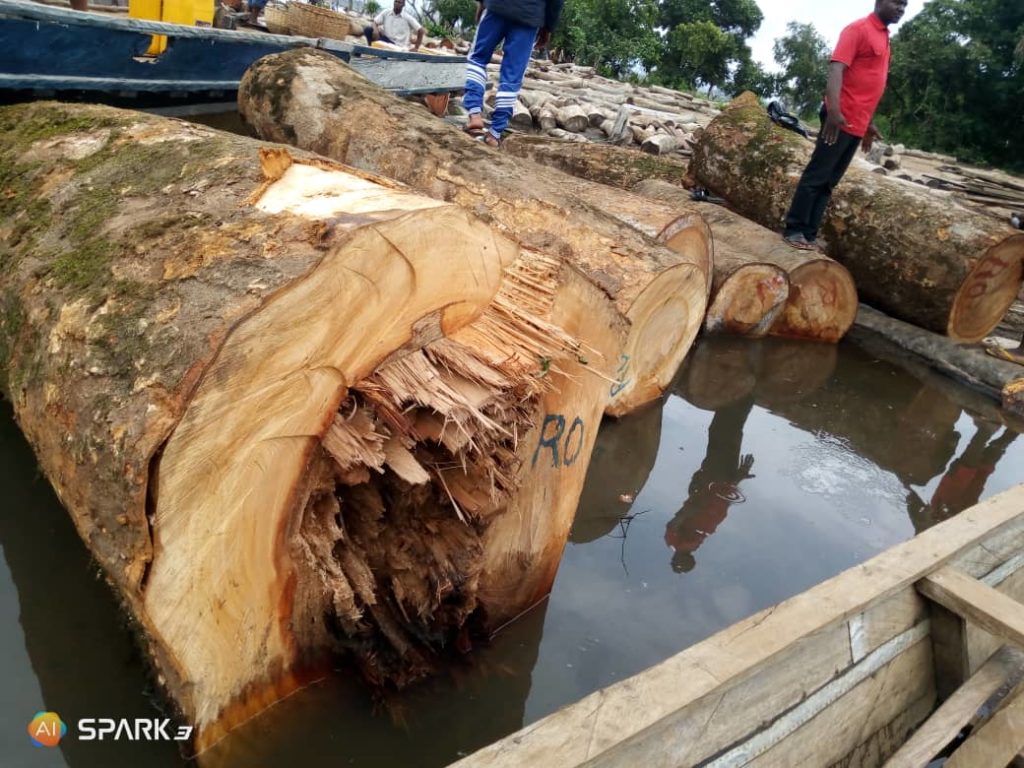
This increasing demand for timber by the Chinese can be attributed to the growing needto fuel the taste for high-quality furniture by the rapidly expanding middle and upper classes in China, Mama says. In 2017, a report by the Environmental Investigation Agency (E.I.A), an organization that identifies and implements solutions for global environmental issues, found that 45 percent of Nigerian timber exports constituted of rosewood, locally called kosso,a highly prized wood used for the production of luxurious furniture.
Mama reveals that Red Apa (also called Doussier afzelia)and Madrid wood (another local name for African rosewood), two varieties of high quality African tropical hardwood, are most preferred by the Chinese timber merchants he works with. “The Chinese people are very selective; they reject low quality timber and demand for a quick replacement. They prefer Apa and Madrid woods,” he says.
Despite the growth in the wood industry as a result of increasing Chinese presence, there are concerns as to the implications of this trend, if left unregulated, on the Nigerian environment and economy.
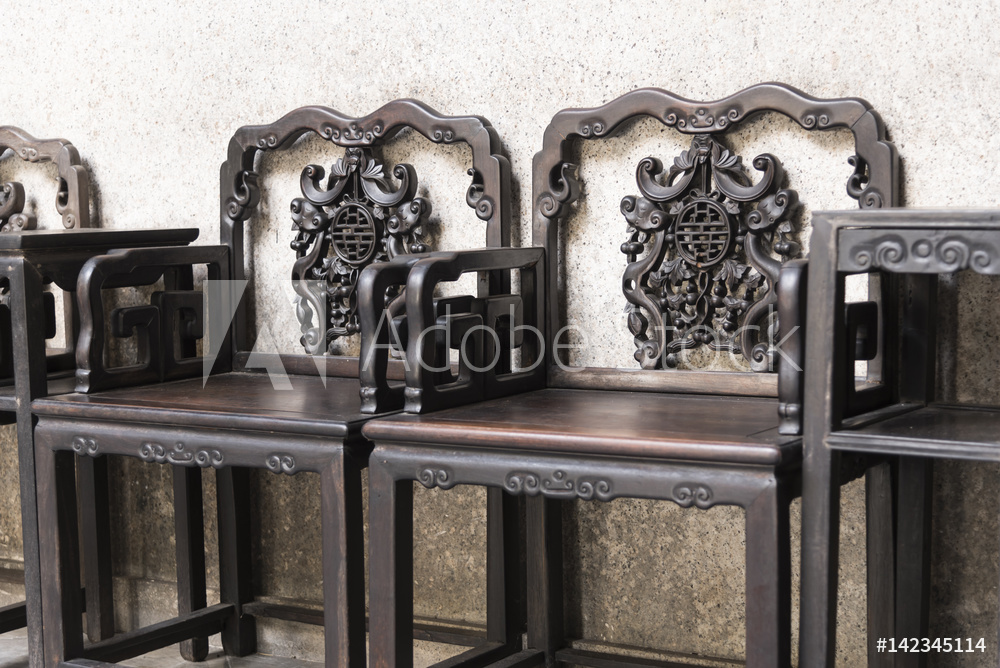
The demand for hardwood to fuel the production of luxurious furniture in China has resulted in unprecedented loss of thousands of square kilometers of trees in Nigeria, according to reports by the Environmental Investigation Agency. From 2001 to 2018, Nigeria had lost over 800 kilo hectares of tree cover according to the Global Forest Watch. This loss of tree cover is concentrated in the Northern parts of Nigeria which posses a rich variety of tropical African hardwood. The Institute of International Tropical Agriculture (IITA) points out that the rate of deforestation in Nigeria is alarming at 3.5 percent per year, translating to a loss of 350,000 -400,000 hectares of forest land per year. Reports from the Environmental Investigation Agency show that the primary driver for this spike in loss of tree cover is the illegal felling of trees by the Chinese timber merchants to export to China.
CREDITS: GLOBAL FOREST WATCH
The reports also show that this situation is not limited to Nigeria only. Before the Chinese timber merchants made their way to West Africa, they met their timber demand by importing from Malaysia and other South-East Asian countries. When the resources in these countries dwindled, they moved to West African countries like The Gambia to source for timber. The timber export boom in The Gambia began in 2011 and after resources depleted, the Chinese timber merchants moved to other West African countries like Guinea Bissau, Togo, Benin, and Ghana before finally making their way to Nigeria.

According to the director-general of the Raw Materials Research and Development Council (RMRDC) in Nigeria, Dr. Hussaini Doko Ibrahim, one of the reasons for this movement by the Chinese timber businessmen is to exploit the lax regulating and enforcing environment, loopholes in existing laws and the unwillingness of government to firmly uphold existing policies on illegal trade in the export of the country’s forest resources.
“Since 2011, the Chinese traders have been moving from one West African country to the other in search of rosewood. They started from the Gambia which became the largest exporter from the sub-region to China. As supplies dwindled in Gambia following an export ban, traders started exploiting Guinea Bissau, Togo, Benin, Ghana and recently, Nigeria. In 2014, more than 30,000 Chinese companies traded in rosewood products, generating domestic retail revenues of over $25 billion. Currently in Nigeria, the timber merchants are moving from one state to the other, depleting rosewood trees and leaving blighted and raped landscapes without minding the effects of unrestrained harvesting of the wood on the environment.”
Dr. Hussaini Doko Ibrahim, speaking to journalists
With growing concerns over the consequences of illegal tree felling on the environment, state governors across Nigeria, in a bid to discourage the illegal logging of timber imposed heavy levies on illegally logged timber and in some states, outrightly banned the felling of any tree species.
In 2007, under the administration of Ex-governor Danbaba Suntai, the logging of timber in Taraba state was banned. This was done in an effort to reinforce the Taraba State (Control of Chainsaws) Law of 2003 which states, “No person shall use any chainsaw for felling any tree in the state unless he shall first have applied and obtained from the Ministry of Environment and Solid Minerals in the State a License in the form as prescribed in the Schedule of this Law.”
This however did not discourage the Chinese timber merchants who rather adjusted to these changes and changed their mode of operation. They contracted agents such as Mama to play the role of the middleman between themselves and the local communities to gain access to these high-quality woods. These agents boycott the ministries and state government regulatory agencies that protect forestry and go straight to the communities to cut down trees.
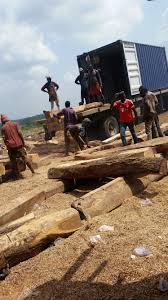
Mama says he negotiates directly with the local village leaders and when a price has been agreed upon, he proceeds to cut down the trees. “Before we cut down any trees, we have to talk to the village heads. We don’t have to go to any state ministries or any agencies because these trees are owned by the community. Sometimes, they are owned by individuals who had inherited the land from their great-grand-parents. We have to talk to them to find out which portions of land to cut trees from because there are some parts of the forest, they don’t want any interferences in.”He says that the local community also benefits from this timber deal with the Chinese merchants and have no issues with the trees being felled.
“Before the Chinese came, the villages cut down the trees to make furniture, for firewood and all that stuff, but now, they see this as an opportunity to make more money and they go along with it. We don’t have any issues with the community leaders except for the occasional price squabble,”
Ibrahim Mama
Illegal logging of high-quality African hardwood is not the only concern raised from China’s growing involvement in the Nigerian wood industry. Unscrupulous activities by the custom officials and Chinese businessmen have robbed the country of the much-needed revenue according to investigations by the Federal Ministry of Agriculture and Rural Development.
The investigations show that over $330 million in revenue from timber exports, was undeclared by the Nigerian custom officials in 2014 alone. This timber racketeering scheme orchestrated by the custom officials, Chinese businessmen and in some cases ministry officials, has cost Nigeria millions in revenue which could have been put to good work in developing the country.
A source at the Nigerian customs, who requested anonymity, speaking on this said, “I don’t think it is a common practice in customs but that is not to say that some criminal elements will not be a part of the timber export deal. You have to understand that the export process is not done in isolation by the customs. There are other parties and agencies involved in the process. If the customs are declaring false figures, then it implies that the other parties involved in the export deal are also manipulating figures.”
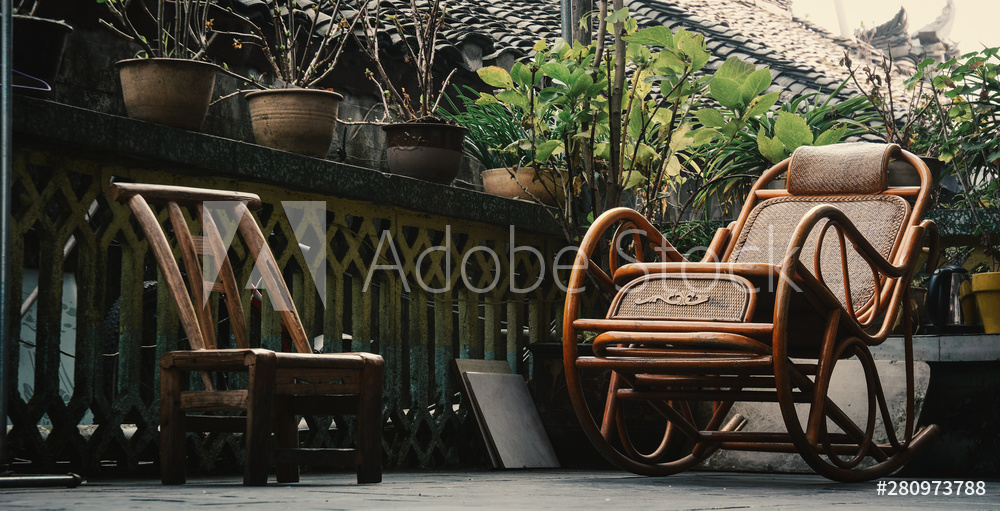
Investigations conducted by the Environmental Investigation Agency (EIA)show that this timber racketeering scheme is not limited to the custom offices only but extends to the top arms of the Nigerian government. According to this investigation, top government officials including ministers and congressmen are paid copious amounts of money in bribes to facilitate the movement of illegal timber to China.
In 2016. E.I.A investigations revealed that over 1.4million African rosewood logs, worth over 300million USD, imported from Nigeria were detained at the seaports in China because they failed to provide the necessary CITES documents. A CITES documentis issued in the international trade of endangered species of wild fauna and flora.
To ensure the entry of these logs of rosewood timber into China, top government officials in Nigeria were paid bribes to provide fraudulent CITES documents according to the EIA. Also, there were meetings between the Chinese consulate and the Vice-President to facilitate the entry of these timber logs. At the end of the day, 4000 CITES documents were issued by the Nigerian authorities to legitimize these detained woods.
CREDITS: GLOBAL FOREST WATCH
These corrupt practices in the Nigerian wood industry has not only encouraged alarming rates of deforestation but also poses serious threats to the environment. In Taraba state for instance where trees are found at hilltops, they are cut and rolled down hill causing extensive damages to the surrounding vegetation.
The Environmental Investigation Agency (E.I.A), at its CITES meeting in Geneva, warned that if this trend is left unregulated and unchecked in Nigeria, it would further devastate the environment, livelihoods of thousands of people and undermine national efforts to mitigate climate change.
They recommend a complete reform of the Nigerian wood industry to encourage transparency and traceability. They also advice that an international ban be placed on the trading of African rosewood in Nigeria to curb the excesses of the Chinese timber merchants.
In spite of all these, Mama sees no fault in his actions as a contributor to this trend and is grateful for the Chinese presence in the industry.
“The Chinese are very good businessmen and they are very hardworking. Apart from the price disagreements we sometimes have and language difficulties, I enjoy working with them,”
Ibrahim Mama
